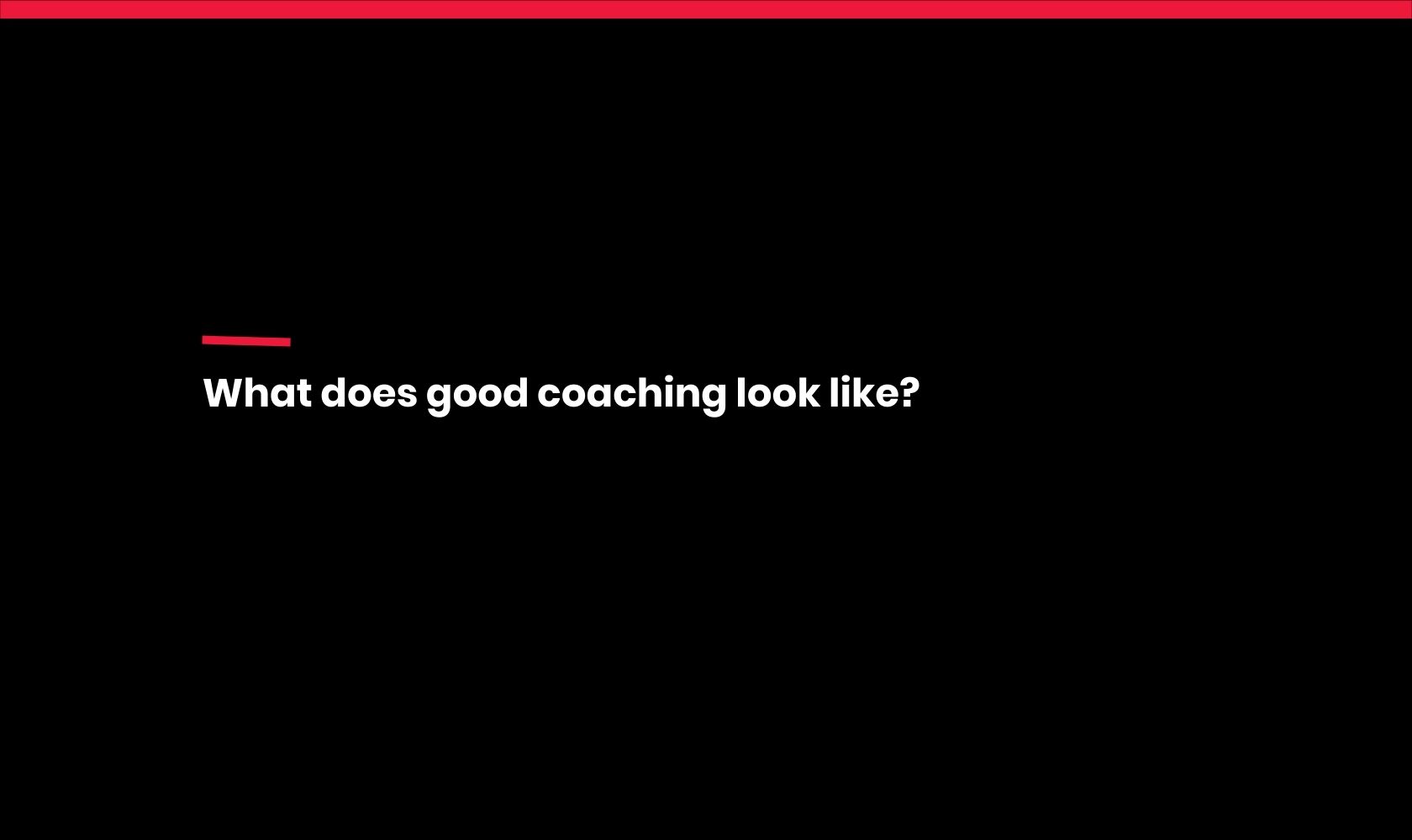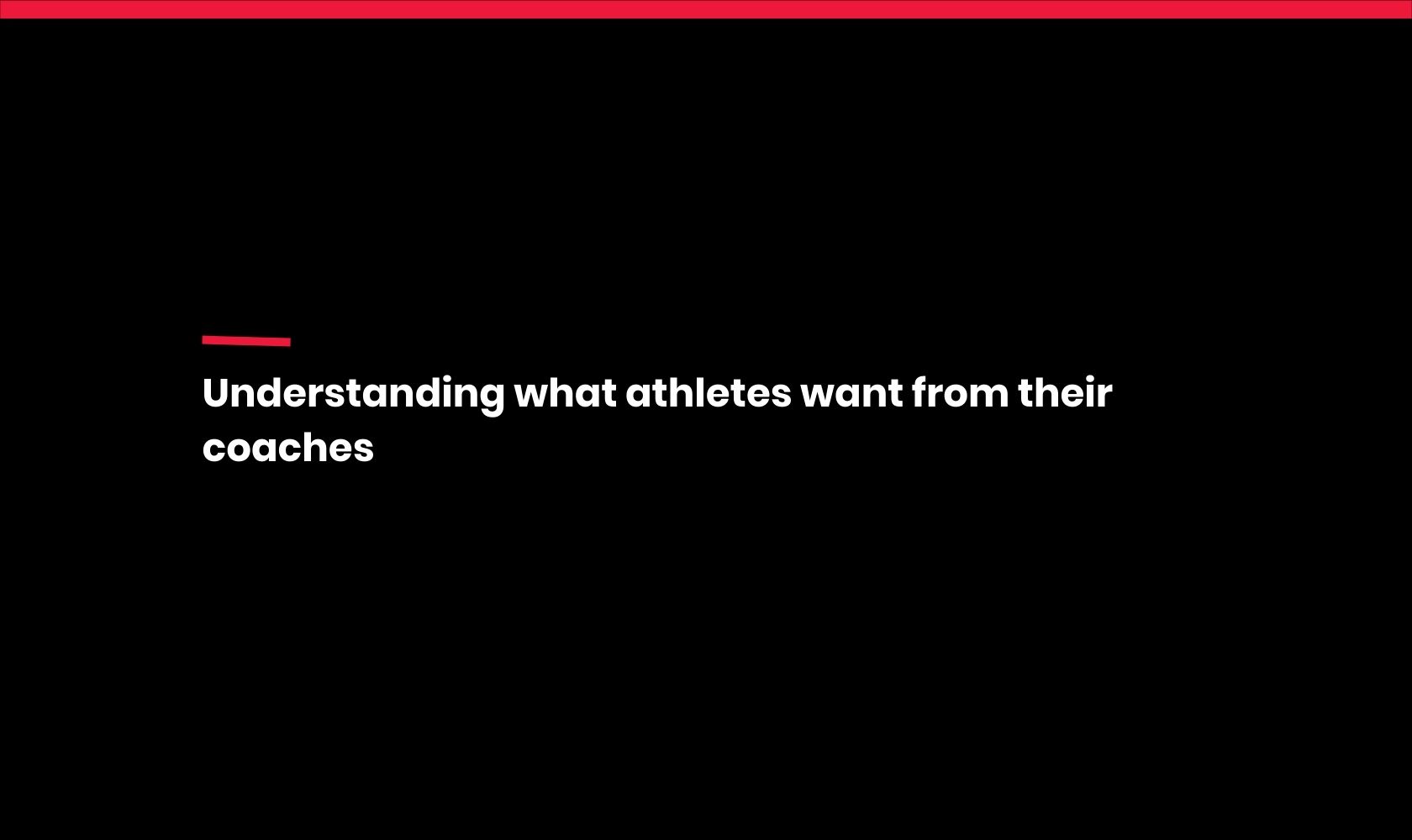We all want to be the best coach possible. But what makes a good coach? And, by extension, is there a particular trait, ideology, or approach that all good coaches possess? In this article, we compile the opinions of Dr. Wade Gilbert, internationally-acclaimed coaching consultant and sport scientist, and a host of other expert coaches in order to discuss the foundations of good coaching — and consider the one thing that all good coaches do.
What Does Good Coaching Look Like?
Before striving to be good coaches, it’s important to understand what good coaching entails. “We often want to get better,” explains Gilbert, “but, before we do that, we have to agree on what ‘better’ is. What does ‘better’ look like?”
As coaches, we should constantly seek to reflect on our approach — on our identity and coaching philosophy, our reasons for coaching, and the outcomes we wish to achieve — and always be willing to learn. This will, in turn, help us to build a clear idea of what good coaching looks like.
To emphasise this point, Gilbert refers to an interview with Dave Roberts, World Series-winning Head Coach of the LA Dodgers: “When he was hired, before he even met with the team, he went out and connected with coaches in other sports and asked them for advice. He wanted tips on how to build a great team and connect with people.”
According to Gilbert, who notes that even the best coaches are open-minded and eager to learn, the fundamental principle Roberts established was simple: “Good coaches understand that they’re in the service of their athletes.”
Essentially, we must remember that sport was not created for coaches, but for its participants. Putting our egos aside, appreciating that sport (at all levels) is not about us, and endeavouring to focus on our athletes’ needs are vital first steps in becoming better coaches.
Understanding What Athletes Want from Their Coaches
The next step in being a good coach and focussing on our athletes’ needs is understanding what they want and expect from us. Gilbert explains that athletes generally ask themselves three things about their coach:
- Does my coach care about me?
- Can I trust my coach?
- Can my coach make me better?
“I think this really captures the essence of coaching,” says Gilbert. “If you do nothing else, always think about these three bullet points. Ask yourself: ‘Are the things I’m doing this session showing my athletes that I care about them, that they can trust me, and that I can help them get better?’
“When you do that, you and your athletes will have a much better experience.”
Coaching People First
A corollary of focussing on the athlete and understanding what they want is the notion that, as coaches, we coach people first, and sport second.
“I recall talking to Jill Ellis, two-time World Cup-winner with the U.S. Women’s National Soccer Team,” says Gilbert. “She shared the idea that to really have success and connect with athletes, you must have the mindset that you’re coaching people who happen to play a sport.
“So, for example, you’re not a tennis coach; you’re a people coach; you’re coaching people how to serve.
“When we think about coaching that way, it constantly reinforces the human element. We’re not teaching techniques, tactics, and strategies; we’re teaching people how to do these things.”
Athlete-Centred Coaching
This concept – of coaching people first and sport second – is the essence of athlete-centred coaching — a term that’s increasingly prevalent in the world of sport, across a range of levels and codes.
“When it comes to coaching and athlete development, the athlete must sit at the centre of the environment,” explains Dave Wright, High Performance Athlete Development Consultant at High Performance Sport New Zealand. “A fundamental aspect of helping athletes to maximise their potential, and love (and stay in) the sport is knowing and understanding them. Not just as athletes, but as people.”
According to Wright, coaches should recognise and account for the socio-cultural factors that influence athletes — things like their home and school lives, family background, how they travel to training, and their social relationships — when designing sessions and interacting with individuals. This is critical to taking an athlete-centred approach to coaching.
“Emotional intelligence is key for any coach,” adds Rob Sherman, General Manager of Technical & Coaching at Melbourne Victory, and former Technical Director at New Zealand Football. “The ability to recognise and deal with different behaviour models and adapt your own behaviour accordingly is essential. You can’t place the players’ best interests first if you see everything based solely on your own perspective.”
So, as coaches, we must embrace the human side of coaching, strive to know our athletes as people, and tailor our sessions to their personal needs.
“Whether you’re working at the highest level or you’re coaching kids in your city, it’s the same principle,” concludes Gilbert. “We coach people first, and sport second.”
The Number One Thing That Good Coaches Do
So how can we use this information to establish the trait or approach that all good coaches possess?
According to Gilbert — and a number of other top coaches and experts — the best coaches recognise that they are at the service of their athletes, and thus endeavour to put them first.
This means getting to know our athletes as people, understanding what they want from their coaches, endeavouring to coach the person first and the sport second, and subsequently working with them on an individual basis, centring our coaching methods and interactions upon their individual needs.
Some practical tips for coaches to get to know their athletes, says Vince Minjares, lead of coach and game development at Harbour Basketball, include:
- Making a point to connect in a positive manner with every athlete in a non-sport specific way during each training (even if its short).
- Use travel, road trips, team meals, etc. as opportunities to connect with athletes and learn more deeply about them, their history, their family etc.
In simple terms, the number one thing that good coaches do is appreciate the human aspect of sport, and allow it to underpin all other aspects of their coaching.
In Summary
- Before aiming to be better coaches, we must establish what good coaching looks like.
- The best coaches are open-minded and eager to learn.
- As coaches, we must remember that we are at the service of our athletes. This means putting our egos aside and focusing on their needs.
- Athletes generally want to know three things about their coach: Does their coach care about them? Can they trust their coach? And can their coach make them better?
- Building connections with athletes requires an appreciation that we coach people first, and sport second.
- Athlete-centred coaching is essential to building meaningful connections and putting the athlete first. It means getting to know our athletes as people, understanding the socio-cultural influences in their lives, and tailoring our methods and interactions in order to give them great learning experiences.









